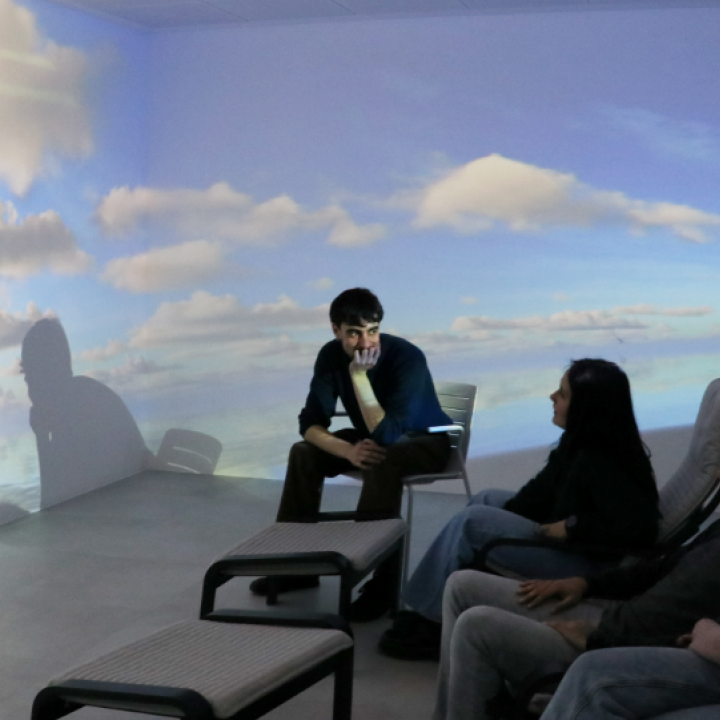She is a woman, aged between 51 and 70, who spends 14 hours a day caring for a dependent family member and receives no assistance. This is the profile of the non-professional carer in Catalonia according to this report prepared by Suara Cooperativa.
The study takes an x-ray of the nearly 97,000 non-professional carers in Catalonia according to data from the Department of Social Rights in 2023. It describes the stages the carer goes through: from initial bewilderment and misinformation to physical wear and tear and later psychological, sadness and personal isolation.
It also includes the results of recent surveys that confirm that female caregivers spend an average of 14.6 hours a day caring. Regarding their own well-being, 6 out of 10 admit that they feel tired and 80% do not feel free to organize their lives. Almost half of the carers who had a job (47%) stopped working, partially or completely, to devote themselves to care (in the case of male carers, only 18%). In addition, 8 out of 10 carers surveyed do not have any help, service or benefit.
The report warns that Catalonia leads the ranking of waiting lists for dependency aid at the level of the entire state, according to data from the Association of Managers and Directors of Social Services. According to data from Imserso, 267,442 Catalans have been granted the right to receive a benefit for their dependency. But more than 25% (68,074) are still waiting for the resolution of their case.
It also warns that in Catalonia there are 1.5 million people older than 65, but only 8.2% (129,511) receive some type of aid or public service for dependency or the promotion of autonomy. In total, there are 33,827 places in residences or day centres, which represents a coverage rate of 2.25%. Only 32,657 people over 65 receive help at home (coverage of 2.17%) and 24,087 have a teleassistance service (1.60% of the total). Finally, 21,334 (1.42%) receive some kind of financial benefit linked to the day centre, residence or home help service. (Social Services Map 2022)
With the report, Suara brings the worrying situation of the aging population and care to the public agenda and vindicates the role of the nearly 97,000 non-professional carers.
The perfect demographic storm
The situation will be increasingly worrying if we look at the demographic projections. According to Idescat (Institute of Statistics of Catalonia), there are 1,528,323 people aged 65 or over in Catalonia, 19.3% of the population. In the city of Barcelona they are already 21.3% (349,441) and there are more than 119,000 people over 80 years old. But according to their future projections, in 2040 they will be 26.1% and in 2050 28.9% (2,490,039). At the same time, the working-age population will decrease as a result of the fall in the birth rate in recent decades.
As for Spain, in 2050 it will be the country with the longest life expectancy (84.9 years) and one of the oldest in the European Union and in the world. According to Spanish government data (Report Spain 2050), one in three citizens will be 65 or older. And the most worrying thing is that, for each person in this group, there will only be 1.7 of working age (today there are 3.4). All of this poses a great challenge: there will be many more elderly people and many fewer young people of working age to support the welfare state.
Dúnia Roselló Sainz, Director of Communication and Marketing at Suara, warns: "It is clear that there will be more and more elderly people and, therefore, more people with dependency. This calls into question the future sustainability of the current state of welfare, it forces an urgent reflection on the future of care and to decide who and how we want them to assume it. The aging of the population will require expanding, optimizing and transforming the long-term care system.”
Aliura, the first portal of the dependency
To help and accompany dependent people and their carers, Suara Cooperativa has created Aliura.coop, the first portal on dependency in Catalonia. It has the support of the Department of Business and Labor of the Generalitat of Catalonia through the Singulars Project and concentrates all reliable and up-to-date information on aid, resources and services around dependency. And also tools to emotionally manage the process by which a family member becomes dependent.
Aliura provides information on what dependence is, the first symptoms and its evolution. With close language, it addresses both the dependent person, the carer and the rest of the family. It also details the services, aids and resources to promote the autonomy of older people who want to continue living at home but need help. In the section 'Away from home', it includes information on how to manage the moment when it is no longer possible to be at home all day or to continue living there and it is necessary to look for resources such as day care centers, residences or assisted flats. In the 'Aids' section, Aliura details all the information on who can access the Aids of the Dependency Law and how to do it: how to obtain recognition of the degree of dependency, what is the average waiting time or which resources you can choose (teleassistance, home care, financial benefit, etc.).





